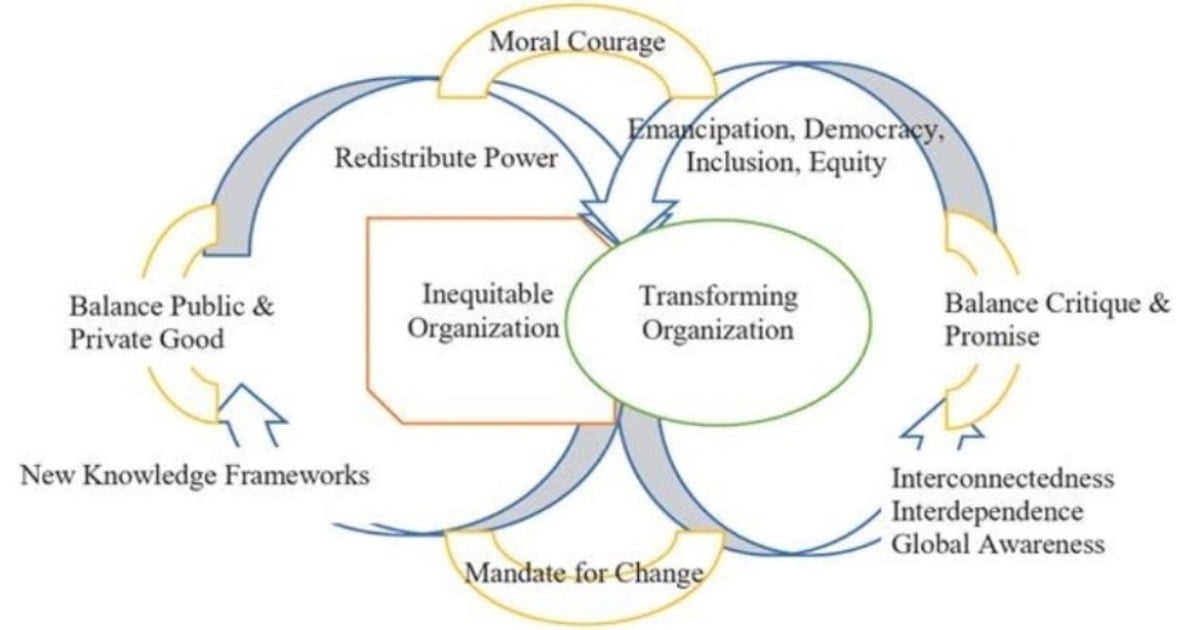- 2.6Impact Factor
- 5.5CiteScore
- 30 daysTime to First Decision
Transformative School Leadership: Strategies for Innovation and Improvement
Special Issue Information
Dear Colleagues,
The focus of this Special Issue of the Education Sciences journal is transformative leadership theory, and our purpose is (1) to distinguish it from other forms of leadership, including transformational leadership, and (2) to demonstrate how it offers an approach to fostering social justice in both schools and societies, including strategies for innovation.
In a time of significant global uncertainty, there are challenges regarding the current formats of schools because the leaders of these schools are facing considerable pressures to ensure that their institutions both support all students in their communities and also prepare them to take their place as members of civil society. We believe that a view of leadership, like transformative leadership, which is focused on both care for each individual as well as care for all, is not only timely, but essential. There are at least two well-known approaches to transformative leadership, with many additional adaptations—one from the global North, the other from the global South. One emphasizes an activist approach to social justice, asserting that “Transformative leadership begins with questions of justice and democracy; it critiques inequitable practices and offers the promise not only of greater individual achievement but of a better life lived in common with others” (Shields, 2011). The other emphasizes “sustainable social change from an integrated spiritual and scientific perspective” (Wilmette Institute). We anticipate that this Special Issue will provide an opportunity for a dialog between the two as well as, perhaps, an integration of some of their key ideas.
Thus, this Special Issue aims to considerably advance the literature on transformative leadership by bringing together top researchers from many countries and providing a forum for their interaction. Authors will have the opportunity to demonstrate how they use and/or adapt transformative leadership theory in multiple political and cultural contexts as well as to reveal some of the specific strategies they use to advance the United Nations’ sustainable education goal of “equitable, inclusive, and quality education and lifelong learning for all”.
If you are considering a submission, please contact the editors and provide a synopsis of the intended work. Once you have approval from the editors, you may proceed to prepare your paper and formally submit it thereafter. The editors can be contacted for advice during this development phase.
Prof. Dr. David Gurr
Prof. Dr. Carolyn M. Shields
Guest Editors
Manuscript Submission Information
Manuscripts should be submitted online at www.mdpi.com by registering and logging in to this website. Once you are registered, click here to go to the submission form. Manuscripts can be submitted until the deadline. All submissions that pass pre-check are peer-reviewed. Accepted papers will be published continuously in the journal (as soon as accepted) and will be listed together on the special issue website. Research articles, review articles as well as short communications are invited. For planned papers, a title and short abstract (about 250 words) can be sent to the Editorial Office for assessment.
Submitted manuscripts should not have been published previously, nor be under consideration for publication elsewhere (except conference proceedings papers). All manuscripts are thoroughly refereed through a double-blind peer-review process. A guide for authors and other relevant information for submission of manuscripts is available on the Instructions for Authors page. Education Sciences is an international peer-reviewed open access monthly journal published by MDPI.
Please visit the Instructions for Authors page before submitting a manuscript. The Article Processing Charge (APC) for publication in this open access journal is 1800 CHF (Swiss Francs). Submitted papers should be well formatted and use good English. Authors may use MDPI's English editing service prior to publication or during author revisions.
Keywords
- transformative leadership
- equity
- excellence
- inclusion

Benefits of Publishing in a Special Issue
- Ease of navigation: Grouping papers by topic helps scholars navigate broad scope journals more efficiently.
- Greater discoverability: Special Issues support the reach and impact of scientific research. Articles in Special Issues are more discoverable and cited more frequently.
- Expansion of research network: Special Issues facilitate connections among authors, fostering scientific collaborations.
- External promotion: Articles in Special Issues are often promoted through the journal's social media, increasing their visibility.
- e-Book format: Special Issues with more than 10 articles can be published as dedicated e-books, ensuring wide and rapid dissemination.

